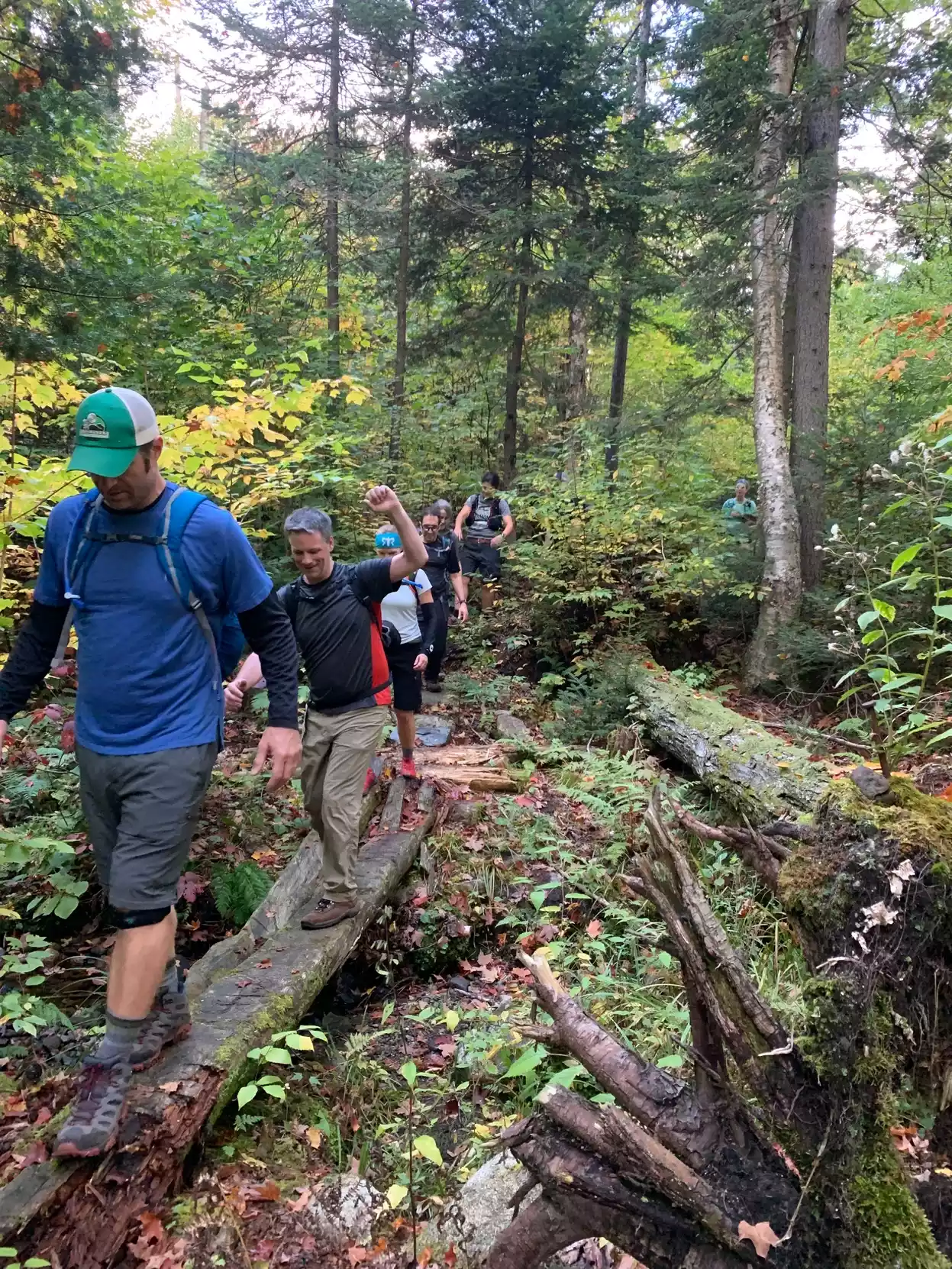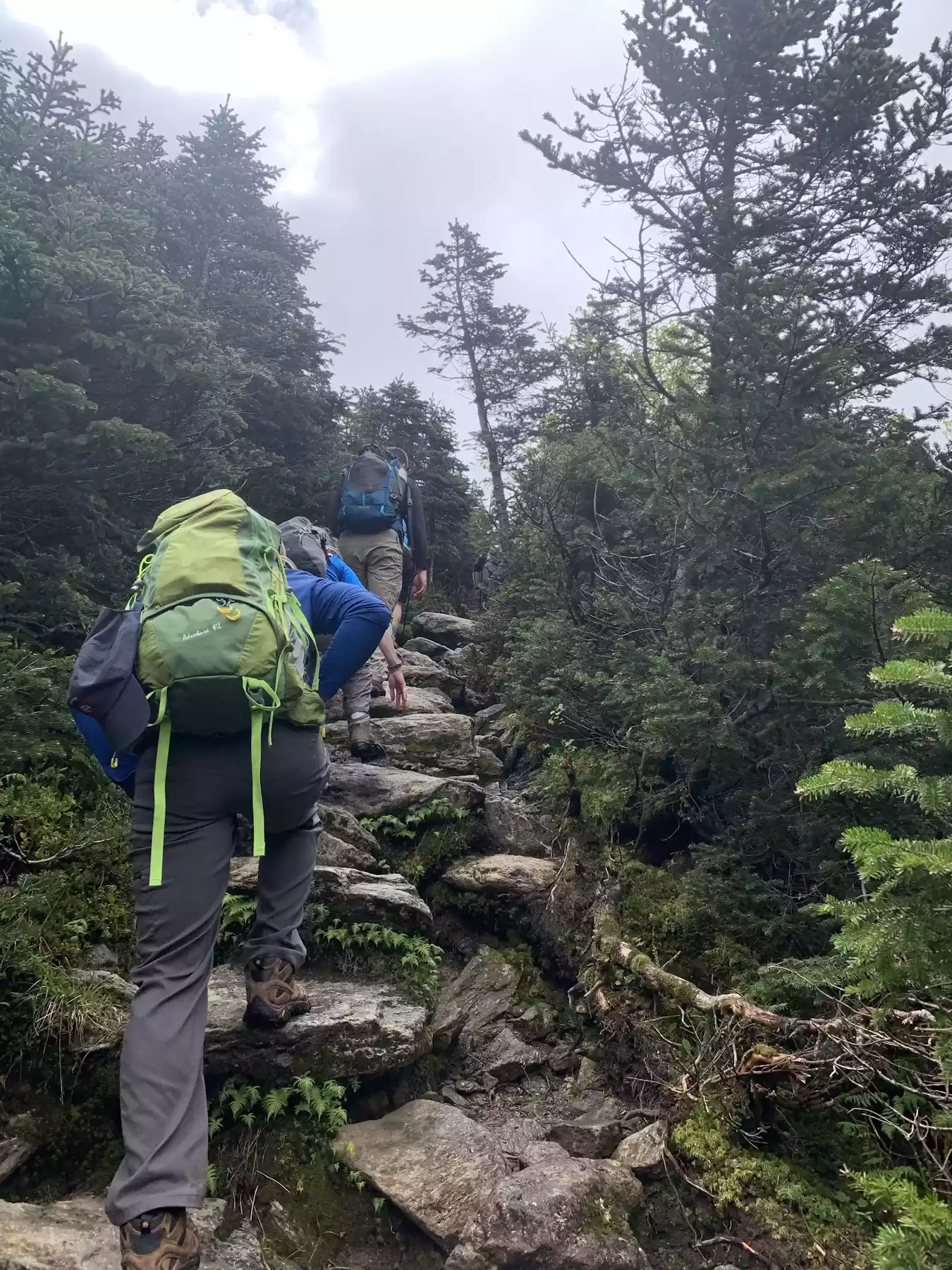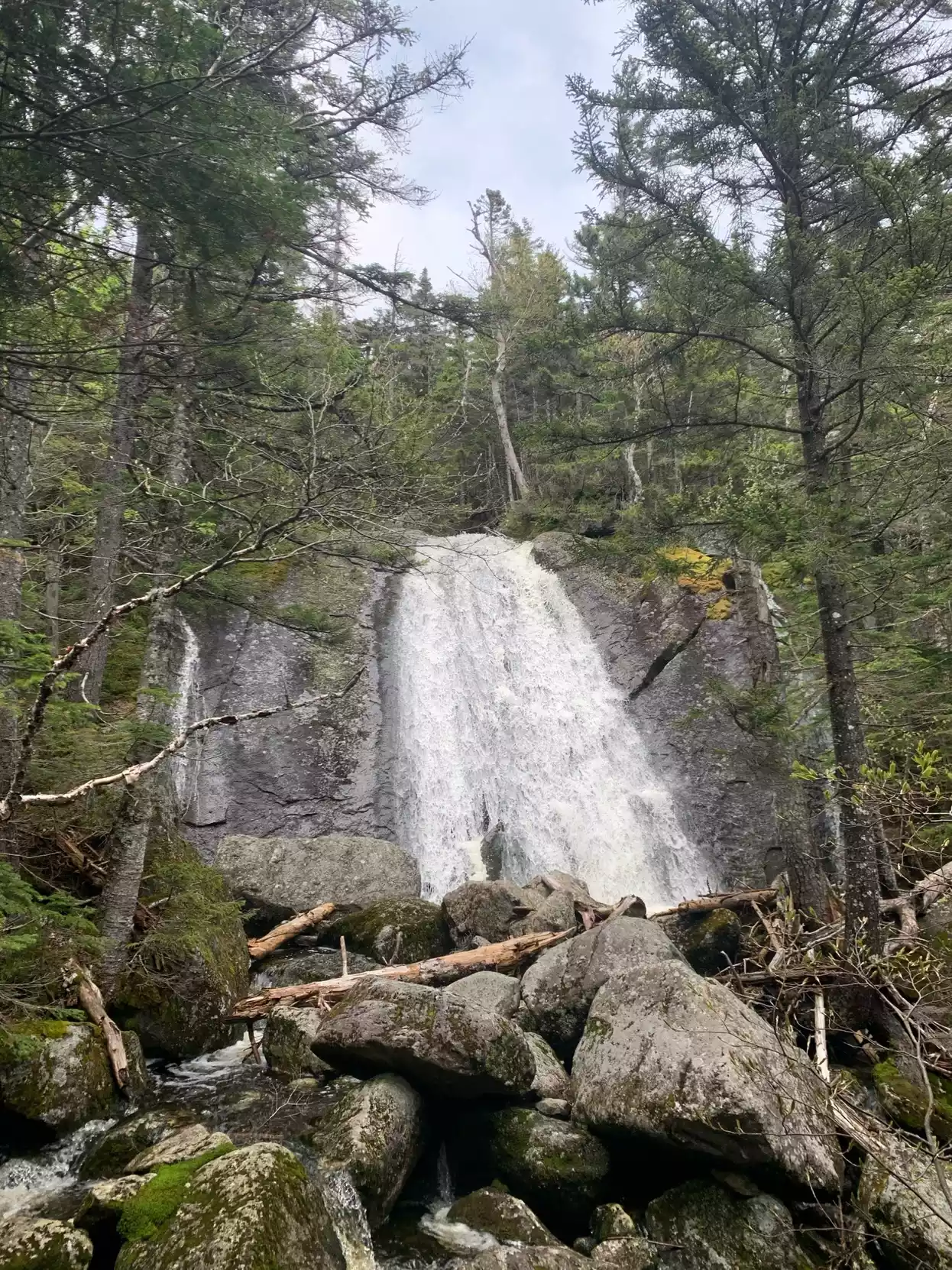

The White Mountains area is home to nearly a dozen paid and volunteer search and rescue teams. And while they are all well prepared to help hikers out of a pickle (or worse), there is a lot hikers can do to avoid needing to call on these professionals. Before your next hike, make sure you are prepared for a safe, fun day in the mountains with these tips.

Too often, hikers–even experienced hikers–don’t spend enough time planning their adventure. Before packing your gear and hitting the trail, a little planning and research will go a long way to ensuring a safe, fun hiking experience.
Consider what kind of hike you (and your group) want to enjoy, and find a trail that suits your preference. Reference crowd-sourced information from places like AllTrails to see what other hikers say about the trails. Make sure you check to see if hiking your chosen trail requires permits or passes. And know whether or not hunting is permitted on the land your chosen trail passes through.
Know what to expect of the trail conditions for the time of year you’re heading out. In the spring and summer, trails may be muddy, or even covered by seasonal creeks. Likewise, river and stream levels may be higher, requiring hikers to forge ankle or knee-deep water crossings rather than stone-stepping.
Since trail conditions are weather dependent… always (ALWAYS) check, double-check, and triple-check the weather forecast. If your hike includes significant elevation change, check the forecast at the base and at the summit. Two great resources for this are the Mount Washington Observatory’s Higher Summits Forecast and the broader focused www.mountain-forecast.com.
And, lastly, it’s good practice to let someone know your hiking plan by providing them with your estimated schedule, a copy of your trail map, and the direction you intend to hike. If something should happen to you on the trail, this person should be able to notify authorities that you’ve not returned from your hike.

Once you have an outline of your hike plan, you can start to gather the gear you’ll need for your adventure. Heading to an exposed or above treeline hike? Better pack the sunscreen. Taking on a dense pine forest with lots of creek crossings in the winter or spring? Wear wool socks, and pack an extra pair. Knowing the details of your hike plan can help you pack efficiently and sufficiently for the day’s adventure.
The distance, technicality, and elevation change of your hike–along with your anticipated pace–will dictate how long you plan to be away from your car. Use that as your guide for what–and how much–to pack. For a typical day hike of 4-8 hours, a 20-25 liter pack is usually about right. For a guide to day hiking essentials, check out our article about must-haves on the trail.
Your pre-hike planning should include research on native wildlife, and your gear should reflect your plan of action if you encounter dangerous wildlife. Many hikes won’t require any special wildlife mitigating items–other than a keen ear and eye. But in some places, bear spray and (or) a bear bell is advised.
Hiking with a group can be a great team-building activity, and it allows hikers to spread out some gear across several packs. It’s a good idea to connect with your hiking companions to see what they are packing so you don’t unnecessarily duplicate items or miss an essential piece of gear.

Starting a well-planned hike is an exciting feeling. Planning gives you time to imagine how the journey will unfold, building anticipation for the first steps away from your car and towards your goal. Once you’re on the trail, there are a few things to keep in mind as you interact with nature, wildlife, and other adventurers.
Keep in mind that human hikers are the uninvited houseguest of the natural places we explore. Always respect nature and wildlife. When in doubt, give space, turn around, or wait for the critter to move away from the trail on their own.
Know your own limits and the limits of your group. Hike at the comfortable pace of your group's slowest member, and take breaks as needed. Taking in calories and fluids early and often can prevent late-day cramping, fatigue, and worse. Be honest with yourself, and your group, about how you’re feeling; and be willing to turn around or cut your hike short if you need to.
Expert naturalists always aim to follow the Leave No Trace principles on their hikes. Those include planning ahead, leaving what you find, and carrying out what you carry in and being respectful of others. Do not remove any plants, earth matter, or wildlife. Likewise, always pack out your trash. As the name suggests, there should be no trace of your journey other than light footprints and your own photos.
Hiking in the White Mountains is a wonderful experience for every level of hiker. Physical achievement, communing with nature, and wildlife sightings are all part of the allure of the White Mountains. Make your hike even more enjoyable by planning ahead, packing smart, and hiking safely.
Guineafowl Adventure Company provides full-service, turnkey guided day hikes in the White Mountains and beyond for people of all abilities and experience levels. We take care of all the planning and preparation for hiking and provide round-trip transportation from the Greater Boston area, day packs with hydration and snacks, safety and convenience items, and friendly, knowledgeable, and experienced guides to lead the way!
Guineafowl's mission is to remove the barriers and obstacles that keep people from exploring nature, so they can feel comfortable, safe, and relaxed while experiencing the physical and mental health benefits of hiking and connecting with nature.
Visit our website to schedule your guided hike or contact us to book a private excursion.